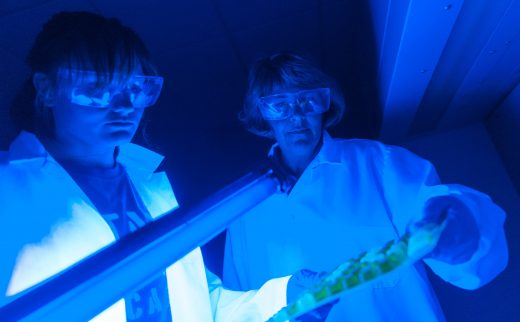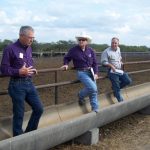The Kansas Water Resources Institute (KWRI) develops and supports research on high-priority water resource problems as defined by the Kansas state water plan. KWRI is designed to facilitate effective communication between water resources professionals and to foster the dissemination and application of research results.
The projects we fund represent key issues affecting Kansas water quality and water resources. These projects have diverse and wide-ranging subjects, including studies on the efficacy of new irrigation technologies, studies on river morphology, drought assessment tools, or water quality assessments.
KWRI is committed to fostering excellence in research, at all levels. To that end, we are proud to support student research at different Kansas universities. Currently, funded projects provide support for eight undergraduate students, three graduate students and one post-doctoral researcher.
This newsletter issue focuses on current KWRI projects. Take a moment to read about this important research that seeks to answer key questions about water issues for our state, including projects on harmful algae blooms, streambank stabilization efforts and riparian buffer strips. If you would like additional information about any project, please contact us at KWRI for more information or email the project leader directly.


